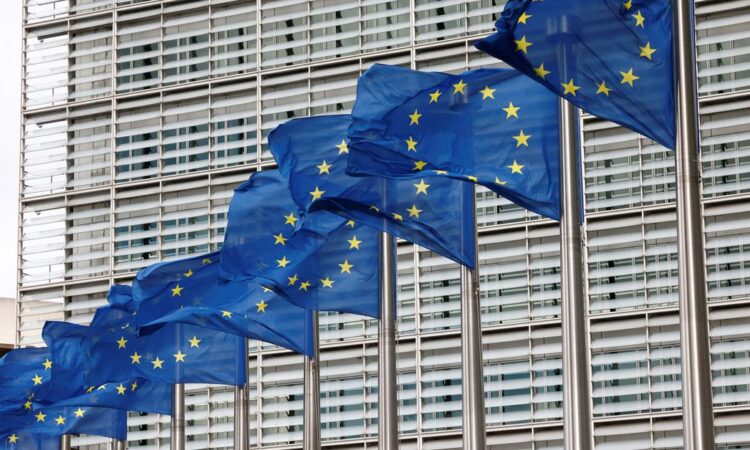
BRUSSELS, Nov 10 (Reuters) – The European Commission proposed on Thursday two action plans to address the deteriorating security situation following Russia’s invasion of Ukraine to bolster cyber defence and to allow armed forces to move faster and better across borders.
The EU executive said Russian cyber attacks on European Union countries and their partners were a “wake-up” call. More action was needed to protect citizens and armed forces, and cooperation with NATO should be stepped up, it said.
“War is back to our borders and the Russia aggression against Ukraine is undermining peace and the international rule-based system globally,” EU foreign policy chief Josep Borrell told a news conference to announce the plans.
“It affects us and we have to adapt our defence policies to this new environment.”
Separately, NATO Secretary-General Jens Stoltenberg warned of growing cyberspace threats, noting recent attacks against satellites, critical infrastructure and government departments, especially as part of Russia’s war against Ukraine.
“Cyber is a constantly contested space and the line between peace, crisis and conflict is blurred,” the head of the U.S.-led defence alliance said in a speech in Rome.
“I call on allies to recommit to cyber defence. With more money, more expertise, and enhanced cooperation. This is a vital part of our collective defence and we are all in this together.”
CAPABILITIES
The policy proposed by the European Commission would boost EU cyber defence capabilities and strengthen coordination and cooperation between the military and civilian cyber communities.
The initiative is part of a series of measures proposed by the Commission to strengthen EU cybersecurity amid a spate of cyberattacks on governments and businesses worldwide.
Last week EU cybersecurity agency ENISA said the invasion of Ukraine had led to more damaging and widespread cybersecurity attacks in the EU in the year to July.
A separate Action Plan on Military Mobility proposed by the Commission aims to help EU countries and their partners to transport troops and equipment more efficiently, work towards “better connected and protected infrastructure” and reinforce cooperation with NATO.
“… for military forces to make a real difference on the ground, they must move fast. They must not be blocked over bureaucracy or a lack of adapted infrastructure,” Commission Vice-President Margrethe Vestager told Thursday’s news conference.
Additional reporting by Foo Yun Chee in Brussels and by Crispian Balmer in Rome
Editing by Gareth Jones
Our Standards: The Thomson Reuters Trust Principles.






